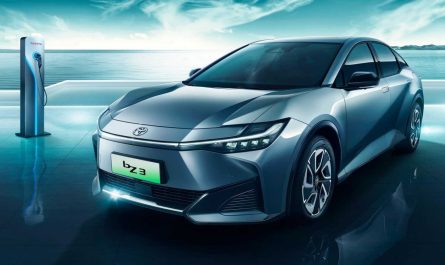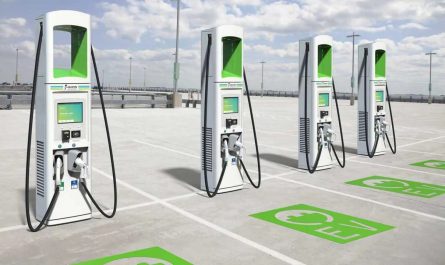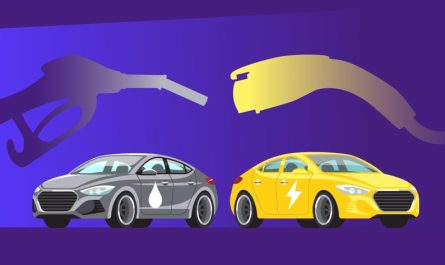Understanding Electric Vehicles
Electric vehicles (EVs) are either partially or fully powered by electricity. They represent a significant shift in automotive technology, utilizing electric motors instead of internal combustion engines traditionally found in gasoline-powered vehicles. The primary types of electric cars include fully electric vehicles (BEVs), which operate solely on electric power, and hybrid electric vehicles (HEVs), which combine an internal combustion engine with an electric motor to optimize fuel efficiency.
Critical components of an electric vehicle comprise the battery, electric motor, and regenerative braking systems. The battery, a crucial element, stores energy that powers the engine, allowing the car to accelerate and operate without needing gasoline. In contrast, hybrid vehicles draw power from the electric motor and the internal combustion engine, using electric energy for low-speed driving and gasoline engines for acceleration or higher speeds.
Several factors set them apart when comparing electric vehicles to their traditional counterparts. Electric cars are often lauded for their lower carbon emissions, as they produce zero tailpipe emissions. This shift reduces air pollution and aligns with global efforts to combat environmental degradation. Despite common misconceptions, the actual lifecycle emissions of electric vehicles tend to be lower than those of gasoline cars, even when factoring in sourcing electricity, especially as renewable energy sources become more prevalent.
Moreover, electric vehicles can provide a quieter, smoother driving experience than gasoline-powered vehicles. Their advanced technology, including features like regenerative braking, enhances driving efficiency while presenting an opportunity to decrease reliance on fossil fuels. Understanding these aspects of electric vehicles is essential for anyone considering the transition from traditional cars to EVs, as it highlights both their potential benefits and considerations for prospective owners.

Pros of Owning an Electric Vehicle
Owning an electric vehicle (EV) presents numerous advantages that can enhance individual and societal well-being. One of the most significant benefits is the economic savings associated with lower fuel and maintenance costs. Electric vehicles utilize electricity, which typically costs less than gasoline or diesel fuel. This can lead to substantial savings over time, particularly for those who drive long distances regularly. Additionally, EVs have fewer moving parts compared to traditional internal combustion engine vehicles, which can result in reduced maintenance costs. This reliability is a vital factor in investing in an electric car.
Moreover, electric vehicles contribute positively to environmental sustainability. By producing zero tailpipe emissions, they significantly reduce air pollutants contributing to climate change and public health issues. The growing awareness of the environmental impact of carbon emissions encourages many consumers to consider electric vehicles a more responsible choice. As technology advances, the life cycle emissions associated with EV production and operation continue to decline, reinforcing the argument for making the switch.
In addition to economic and environmental benefits, government incentives add another layer of appeal to owning an electric vehicle. Many states and countries offer tax credits, rebates, or grants to encourage the adoption of EVs, thereby lowering the initial purchase price. Such financial incentives can significantly influence individuals’ decisions to transition to electric mobility, making EVs more accessible to a broader audience.
Advancements in electric vehicle technology also enhance the overall ownership experience. With improvements in battery technology, many modern EVs now offer longer ranges, alleviating concerns about running out of power during commutes or road trips. Furthermore, innovations in fast-charging stations allow for quicker recharging, making it more convenient for drivers. As these technologies continue to improve, the advantages of owning an electric vehicle are poised to grow, making them an increasingly attractive option for consumers.
Cons of Owning an Electric Vehicle
While electric vehicles (EVs) offer numerous benefits, there are several potential downsides that prospective owners should consider. One significant drawback is the higher initial purchase price than conventional gasoline vehicles. Even with government incentives, the upfront costs of many electric models may deter potential buyers. This financial barrier can make it challenging for some consumers to transition to electric transportation.
Additionally, the availability of charging infrastructure remains a pressing concern. Although charging stations are rising, many areas still lack adequate facilities, particularly in rural regions. This limited access can pose difficulties for drivers who need to recharge their vehicles, making long-distance travel more complicated. Furthermore, on long journeys, drivers may face the challenge of planning routes that accommodate charging stops, which can extend travel times significantly.
Another issue is the longer refuelling times associated with electric vehicles. Charging an EV can take anywhere from 30 minutes at a fast-charging station to several hours at home, depending on the battery capacity and charging system. In contrast, gasoline vehicles typically require only a few minutes to refuel, presenting a convenient option for those on the go. This time disparity may not be suitable for individuals with busy schedules or those who need to travel frequently.
Range anxiety also poses a significant concern for many potential electric vehicle users. Although modern EVs offer improved ranges, the fear of running out of battery power without access to charging stations remains a psychological barrier for some drivers. Moreover, battery lifespan and disposal issues are critical considerations, as electric batteries can degrade over time, leading to substantial replacement costs. Additionally, the environmental impact of battery disposal and recycling remains a topic of discussion and concern.
The Pros and Cons of Owning an Electric Vehicle: Is It Worth It?
Is It Worth Investing in an Electric Vehicle?
Investing in an electric vehicle (EV) presents notable advantages and potential drawbacks that merit careful consideration. Technological advancements have made EVs increasingly appealing, offering benefits such as reduced operating costs, lower emissions, and tax incentives. These factors make electric vehicles attractive to environmentally conscious consumers aiming to minimize their carbon footprint.
For those who primarily drive short distances, the efficiency of EVs can lead to significant savings on fuel costs compared to traditional gasoline-powered vehicles. Moreover, many electric cars have advanced features, such as regenerative braking and intelligent driving technology, enhancing the overall driving experience. However, it is essential to account for the initial investment as electric vehicles often carry a higher price tag than their internal combustion counterparts, which might deter some buyers.
Future trends indicate a shift toward electrification in the automotive industry, driven by stricter governmental regulations on emissions and a growing emphasis on sustainability. Policies promoting electric vehicle adoption, including rebates and investments in charging infrastructure, are becoming more commonplace, further enhancing the viability of owning an EV. Nevertheless, potential buyers should evaluate their driving habits and the availability of charging stations in their locality, as these factors significantly influence the practicality of electric vehicle ownership.
Considering the economic implications of transitioning to an electric vehicle is also essential. While lower maintenance costs can contribute to long-term savings, the resale value of electric vehicles may fluctuate as the market matures and more options become available. Thus, potential buyers are advised to weigh these elements carefully, contemplating how an electric vehicle aligns with their financial situation and lifestyle.
In conclusion, whether owning an electric vehicle depends on individual circumstances, including driving patterns, budget, and personal values concerning sustainability. Evaluating these factors alongside the advancements in the EV market can aid potential buyers in making informed decisions.



